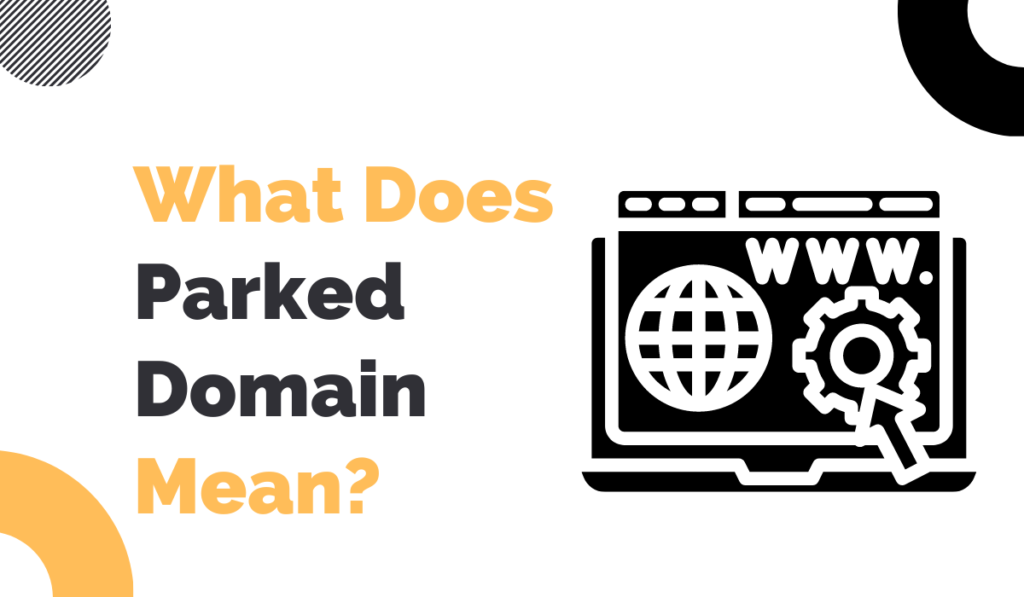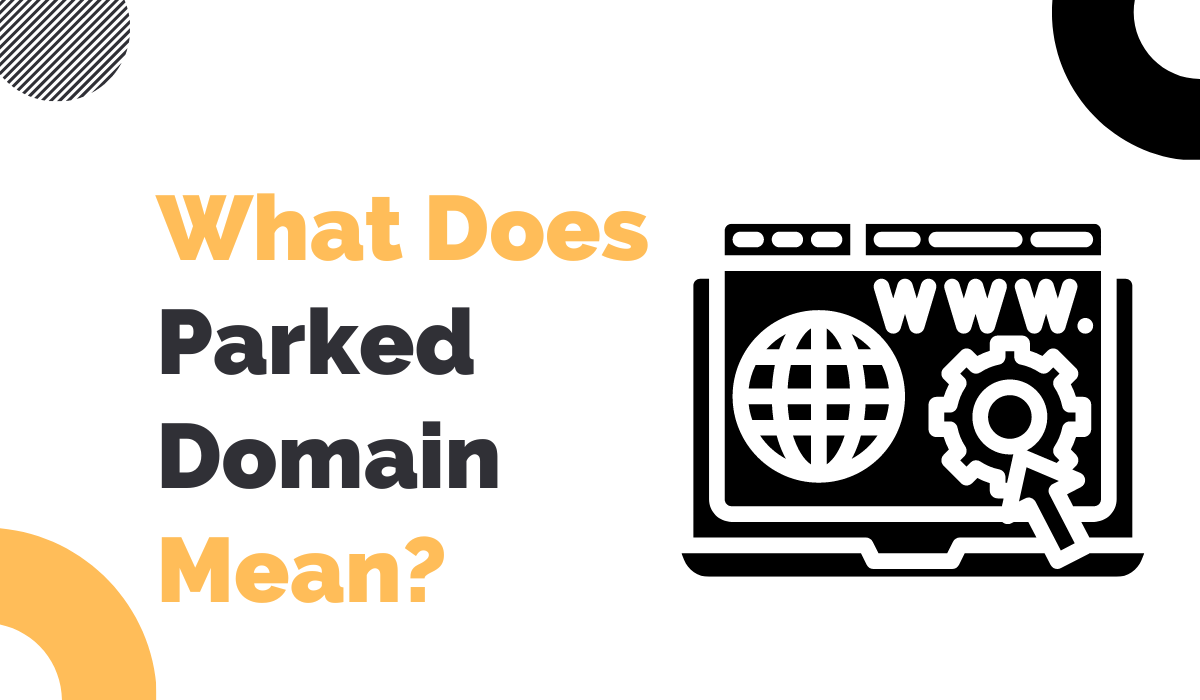
Are you thinking of setting up a company website? It’s no secret that having a website is crucial to growing your business in today’s digital landscape. That’s why you probably spend hours researching the proper tools for measuring the success of your website. And that’s perfectly reasonable.
But if we’re to backtrack a bit, you should know that domain registration is the first and crucial step in the website registration process. Following this, you can then create your logo, content, etc. Your domain name is your business identity. It can pretty much springboard your business into success—or cause it to fail miserably. Your domain name must align with your company’s branding to ensure the former. But if we’re being honest, finding a quality domain isn’t easy. Our advice? Don’t leave domain registration to the last minute. The solution is to park a domain.
What is a Parked Domain?
What does parked domain mean? It’s a domain name that’s registered but not yet functional. In short, you would have purchased it but reserved it for future use. Essentially, it’s “parked.” Once you secure your domain, you can focus on other aspects of creating your website.
A parked domain typically displays a placeholder page or a “coming soon” message instead of a fully functional website.
Why You Need A Parked Domain
As mentioned, a parked domain doesn’t link to a functional website. But since you’ve reserved it, it means that it is yours. Granted, holding a parked domain until you’re ready to launch your website may be costly, but the benefits of having a good domain secured outweigh the costs. With your domain name in the bag, you can focus on other aspects, such as marketing your website when it goes live. You can start researching topics such as whether it’s best to use Squarespace vs WordPress for SEO, and how much to budget for your advertising costs.
Additional Benefits of Parked Domains
- Brand Protection: Secure your brand identity by reserving related domain names.
- Cybersquatting Prevention: Prevent others from registering domains similar to your brand.
- Traffic Retention: Capture potential visitors who might misspell your main domain.
- Domain Monetization: Earn passive income through parking services.
Uses of Parked Domains
We’ll quickly mention that a parked domain serves other uses aside from reserving a valuable name while you get your ducks in a row. You can use it as a secondary domain to direct people to your primary website. Many business owners adopt this practice of purchasing multiple parked domains with similar names. The idea is to take advantage of sloppy typers who might misspell the original domain names.
You could also buy a domain, park it, and sell it at a higher price to someone looking for that exact name in the future. This practice is known as domain investing. After all, it’s now clear how domain names are undoubtedly valuable commodities.
It’s also possible to park an active domain, but this usually happens if you no longer want to keep your website active. In this case, you can easily park your website domain until it expires.
How To Park Your Domain
You can decide to park your domain yourself or through the help of a web hosting company accustomed to handling this kind of work. But in a nutshell, the process of parking your domain starts by securing the domain itself. In this case, you need to check if the name you’re interested in is available. How can you do this?
Step-by-Step Guide to Parking a Domain
- Check domain availability:
- Type your preferred domain name into your browser bar
- If no website pops up, it might be available or already parked
- Verify domain status:
- Look for error messages or “domain for sale” pages
- Conduct a WHOIS lookup to confirm the domain’s status
- Purchase the domain:
- Use a reputable domain registrar
- Choose your registration period (1-10 years typically)
- Set up domain parking:
- Log into your registrar’s control panel
- Navigate to domain settings
- Select the “park domain” option
- Configure DNS settings (optional):
- Point the domain to a parking page
- Set up email forwarding if desired
For more advanced users, you can use cPanel to manage your parked domains:
1. Log into cPanel
2. Find the “Domains” section
3. Click on “Parked Domains”
4. Enter your domain name
5. Click “Add Domain”
Domain Monetization

While your domain is parked, you can potentially earn income through domain parking services. These services display ads on your parked domain and share the revenue with you.
| Pros of Domain Parking Services | Cons of Domain Parking Services |
| Passive income | Potentially low earnings |
| Easy to set up | May affect brand reputation |
| No website maintenance needed | Limited control over content |
Legal Considerations
When parking domains, be aware of potential legal issues:
- Trademark infringement: Avoid parking domains that could be confused with established trademarks.
- Cybersquatting: The Anti-cybersquatting Consumer Protection Act (ACPA) prohibits registering domains in bad faith.
- Intellectual property: Ensure your parked domain doesn’t violate others’ intellectual property rights.
Domain Expiration and Renewal
It’s crucial to keep track of your parked domain’s expiration date. If you fail to renew, you risk losing the domain. Most registrars offer auto-renewal options to prevent accidental expirations.
Conclusion
Parking a domain is standard business practice for the prudent business owner looking to secure a quality domain while creating a website. But that’s not the only reason to have one. You can also park a domain to use it as a secondary domain, sell it, or hold it until it expires. The choice is yours.
Remember, a well-chosen parked domain can be a valuable asset for your business. Whether you’re reserving it for future use, protecting your brand, or exploring domain investing, understanding the ins and outs of parked domains is crucial in today’s digital landscape.

